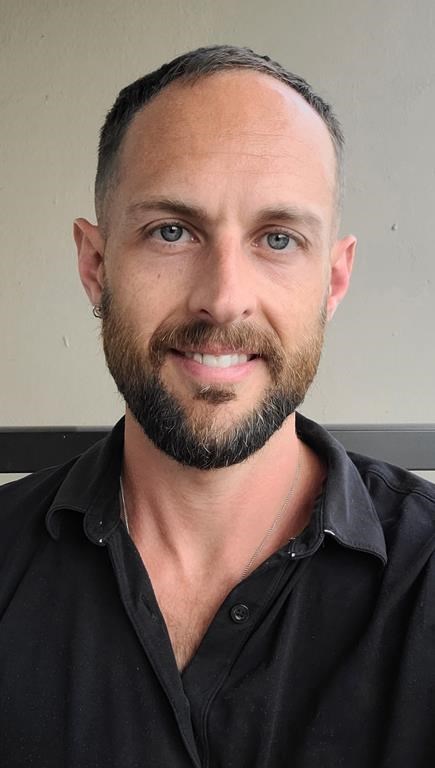Correcting health-care providers who assume he's heterosexual gets tiring for Jeremy Long, who wants his queer identity to be acknowledged and counted in electronic health records.
"It's taxing on a person's mental health and their ability to be understood by the world and to have to constantly feel like it's a piece of the fight of coming out again and again, which can be retraumatizing," the 38-year-old said from Vancouver.
"People aren't always asking questions that lead to more understanding. They're just labelling and so to have to correct that, it feels exhausting."
Long, who came out at age 15, said LGBTQ patients too often face judgment and feel unsafe when they seek care.
Advocates are pushing for the inclusion of gender, sex and sexual orientation (GSSO) information in electronic health records through a co-ordinated and standardized approach across the country.
The Community-Based Research Centre, based in Vancouver, released a report Wednesday calling for all jurisdictions to add more fields on medical forms that would capture the full diversity of sexual orientation and gender identity.
Michael Kwag, the centre's executive director, said that information is either misrepresented or not properly collected in Canada's health-care system. Including it would make it easier to plan for services the LGBTQ community needs, improve access to appropriate care and lead to better health outcomes, says the centre's report.
"Lesbian, gay, bisexual or queer people do have unique health needs and at times also experience higher rates of physical and mental health issues," Kwag said of issues such as depression, anxiety and sexually transmitted diseases including syphilis.
Trans people may also not be screened for breast, cervical or prostate cancer if their electronic health records are not updated, he noted.
Kwag said clerical and administrative workers, as well as health-care professionals, should be trained to better understand sex and gender as distinct concepts. Sex refers to someone's physical characteristics, such as male, female and intersex, and gender is how people identify themselves.
He also cautioned health-care workers about the harms of "deadnaming" patients and using incorrect pronouns, which can happen if medical records are not updated to reflect gender identity.
The research centre's report recommends Health Canada work with provinces and territories to encourage adoption of evolving terminology to include LGBTQ identities in health records.
In an emailed response, Health Canada said collecting standardized data on gender, sex and sexual orientation is a critical step to understanding health-care inequities and discrimination.
Work led by Canada Health Infoway, the Canadian Institute for Health Information (CIHI) and Statistics Canada tries to encourage all jurisdictions to adopt common technical and data standards, including the recording of a patient's gender, sex and sexual orientation.
"These commitments are expected to improve the quality and safety of patient care and provide decision makers with a more complete picture of the health-care system."
Francis Lau, a retired researcher at the University of Victoria's school of health information science, said that four years ago, he created an ongoing working group on sex, gender and sexual orientation with Canada Health Infoway, a federally funded non-profit working to improve health-care delivery through use of digital records.
Lau, who co-chaired the group until recently, said it released a national plan two years ago for provinces and territories to consult with various community groups about collecting and using information related to gender, sex and sexual orientation. Some provinces, including Alberta and British Columbia, have published standards on those issues.
An Alberta Health Services spokesman said provincial standards were developed in 2019 to collect patient information on diverse genders and sexual orientation at all health-care settings and pharmacies as part of a system called Connect Care.
It is expected to be rolled out next year and will include pharmacies.
However, data on sex assigned at birth is requested only if it is clinically relevant and a patient can choose not to disclose any information, he said.
B.C.'s Health Ministry released a "GSSO Health Information and Guidance" document earlier this year about the collection of data to "support trauma-informed care that addresses barriers to access such as misnaming, misgendering, outing and missed opportunities for preventive screening.
It includes guidance on using yet-to-be-specified coding to record people's negative experiences in the health-care system, such as transphobia, "worries related to gender expression and "cisnormative bias," or the assumption that everyone's gender identity matches their biological sex.
Lau said the Canada Health Infoway working group is trying to come up with coding in medical records for various sexual orientations and for those who may be gender fluid or do not want to disclose that information.
"The action plan only talks about what needs to be done," Lau said. "It left the when, how, who to the jurisdictions and organizations, the governments, because you need time and resources to do it."
This report by The Canadian Press was first published July 6, 2023.
Canadian Press health coverage receives support through a partnership with the Canadian Medical Association. CP is solely responsible for this content.
Camille Bains, The Canadian Press



